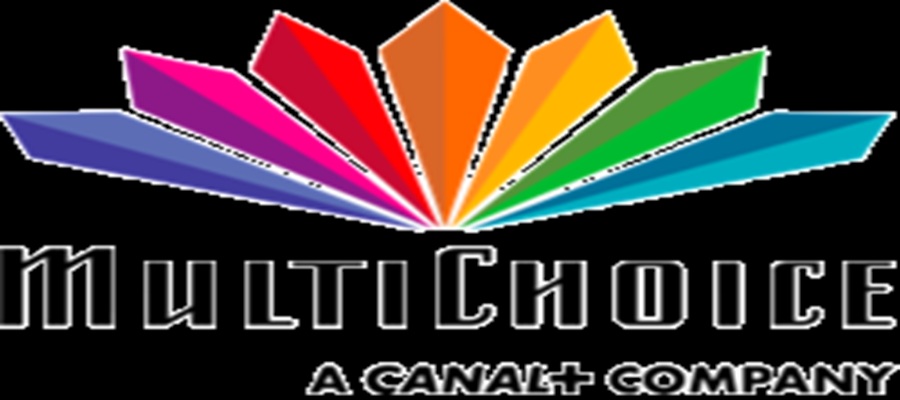Broadcasting
5 things SMBs should look for when considering business apps

By Kehinde Ogundare, Country Head – Nigeria, Zoho Corp.
Small and medium-sized businesses (SMBs) are the lifeblood of the Nigerian economy. According to figures released last year by the International Labour Organisation (ILO), SMBs account for around 48% of Nigeria’s GDP. Additionally, they account for 96% of all businesses and 84% of employment.

To reach their full potential, SMBs must leverage effective business-enabling technology, including solutions for CX, finance, HR and employee productivity. However, it’s important to remember that not every business app is equal. It is essential for businesses to carefully select the apps they utilise, whether opting for a mix of best-of-breed solutions from various vendors or choosing to deploy a unified suite from a single vendor who offers end-to-end business solutions for all needs.
While there are no universal rules for what kind of app will suit a company best, there are a few guidelines that businesses can consider to ensure that they choose apps that are best suited to their business needs.
The app should have a single source of truth (to avoid data silos)
Even small businesses have data accruing from a variety of sources. This data can be incredibly valuable, helping the business make decisions about where it’s performing best and which areas it needs to work on. However, that can only happen if the app (or suite of apps) provides a single source of truth (SSOT). An SSOT aggregates data from across the organisation to a single location. This allows the business to make decisions based on a consolidated view of what’s happening across departments rather than trying to pick through individual data silos.
Check how well the solution scales
The goal of any business is to grow, and ideally, the chosen apps should evolve alongside it. However, many of the solutions marketed to SMBs lack scalability. Scalability isn’t just about adaptable pricing tiers; it also means that they should have a demonstrable track record of working with businesses of various sizes and providing them with the offerings they need to facilitate their growth.
Security
If you’re a small business, you might think that security doesn’t need to be a major concern. After all, how much value is a cyber-criminal going to get out of your business? But it’s high time SMBs prioritise cybersecurity. To understand why, you only need to look at the fact that Nigerian SMEs are among the biggest targets of cybercrime. The breaches that result from this criminal activity don’t just have a financial cost attached to them but can also do massive reputational damage, something which no small business can afford to bear. This is why it’s paramount to ensure that the app chosen complies with local data protection guidelines or regulations and will protect the data of the customers who trust you with their information.
Ease of use
If you’re running an SMB, it’s likely your team is small but wears many hats. Hence, it’s vital to ensure that any business app or suite of apps you select is user-friendly, especially for non-technical staff. Opting for easy-to-use apps has long-term benefits. As your business expands, seamless onboarding becomes crucial. The right app(s) significantly reduce training needs, enabling new employees to be productive team members from day one.
Customer support
Regardless of how easy an app is to use, there will be occasions when additional support is needed. The app provider should ensure support for customer businesses across a diverse range of channels for their convenience. From onboarding new customers to attending to queries, businesses should also evaluate how effective the vendor is with post-sales support.
Always aim for integration
Beyond the level of strategic impact that an app or a platform can bring to your business, another aspect to consider is how well the chosen app can integrate into your existing tech ecosystem. Ideally, the app should be built to accommodate integration, capability extension, and customisation needs in order to truly serve a business’ needs. When the app ticks the checklist discussed above, the ROI it can provide your business can be multifold.
Broadcasting
MultiChoice Suspends Yearly DStv Price Hike as Canal+ Pushes Growth

MultiChoice has said that it will not implement its customary yearly price increase on DStv and GOtv subscriptions.

This is the first time the Pay-TV company will not be adjusting its price in April, as it has in previous years, signalling a clear shift in direction under its new owner, Canal+.
The decision, confirmed by David Mignot, group chief executive,MultiChoice in an interview with TechCentral, comes as the pay television operator grapples with steep subscriber losses across its markets.
For many households accustomed to annual April tariff adjustments, the announcement will be a welcome break.
Responding to questions about whether DStv prices would rise in April as they have in previous years, Mignot gave a firm response: there will be no increase.
He explained that the company’s immediate focus is on rebuilding its subscriber base, making this an unsuitable period to adjust prices upward.
He added that while there are no current plans for a price hike, the company has not completely ruled out adjustments later in the year, especially if economic conditions demand it, such as significant currency movements.
MultiChoice has historically reviewed and raised DStv subscription fees in April, often citing inflationary pressures and rising content costs. As recently as April 2025, bouquet prices were adjusted upwards by between 2.1 per cent and 7.9 per cent.
The DStv Premium package rose from R929 to R979 per month, while DStv Access, the entry-level satellite package, recorded one of the steepest increases.
This year’s pause represents a break from that pattern and forms part of a broader reset following Canal+’s acquisition of MultiChoice in September 2025.
Mignot, who brings three decades of experience in the pay television industry, summed up his mission in simple terms: halt subscriber losses and return the business to growth.
The urgency behind the move is evident in MultiChoice’s recent performance.
The group has lost 2.8 million linear broadcasting subscribers in the two years ended 31 March 2025, with roughly half of those losses occurring in South Africa.
In the financial year to end-March 2025 alone, MultiChoice shed 1.2 million subscribers, representing an eight per cent year-on-year decline and leaving the group with 14.5 million active customers.
The previous year saw an even steeper drop of 1.6 million subscribers. By June 2025, Canal+ indicated that the pace of decline had intensified further.
The financial impact has been significant. Revenue for the year ended 31 March 2025 declined by R4 billion to R52 billion, while trading profit fell sharply by 49 per cent to R4 billion.
According to Mignot, the company’s difficulties stem less from its programming slate and more from weaknesses in its commercial execution.
He argued that in subscription businesses, a churn rate of between 12 and 15 per cent annually is inevitable as customers relocate, experience job losses, adjust household budgets, or change priorities. Without attracting a comparable number of new subscribers each year, losses accumulate.
Mignot maintained that the content offering remains strong, particularly in sport and general entertainment. He cited flagship brands such as SuperSport, M-Net and Africa Magic as evidence of sustained investment in programming. However, he stressed that content strength alone cannot offset a weakening subscriber acquisition engine.
He noted that MultiChoice’s commercial machinery had performed robustly across Africa until around 2022, describing the current challenges as relatively recent.
Drawing on Canal+’s experience in French-speaking African markets, Mignot pointed out that pricing there has remained largely unchanged for close to 14 years, supported by a volume-driven approach. He described his strategy as one focused on growing subscriber numbers while maintaining profitability.
While he did not dismiss the possibility of reviewing prices downward in future, he indicated that no such decision has been taken.
Broadcasting
Spotify Marks 5 Years in Nigeria with 163.5% Listening Surge, Afrobeats Boom

Spotify marked five years in Nigeria since its February 2021 launch with dramatic year-on-year listening growth averaging 163.5% through 2025, featuring triple-digit surges early on and sustained momentum, propelled by Afrobeats streams rocketing +5,022% alongside booming genres like Amapiano (+10,330%), Gospel/Praise (+5,499%), Hip-hop/Rap (+3,020%), and R&B (+2,602%).

Spotify
Indigenous language music listening surged +554% in Nigeria in 2024 and +87% in 2025, with global growth at +141% and +41% respectively, underscoring rising demand for local storytelling sounds.
The platform’s Nigerian artist roster expanded +158%, fueling a discovery boom where average listeners (aged 26) streamed 150 different artists recently; users created over 25 million playlists, logged 1.4 million play hours in 2025 alone, and streamed 59 billion podcast hours total.
Top Artists (2021-2025): Asake, Wizkid, Seyi Vibez, Burna Boy, Davido.
Top Songs: “Remember” (Asake), “Dealer” (Ayo Maff & Fireboy DML), “Awolowo” (Fido), “Kese (Dance)” (Wizkid), “Lonely At The Top” (Asake), “Joy is Coming” (Fido), “With You” (Davido feat. Omah Lay), “Terminator” (Asake), “MMS” (Asake feat. Wizkid), “Doha” (Seyi Vibez).
Nigeria’s debut stream was Shiga Lin’s Cantopop epitomizing borderless discovery from day one.
Broadcasting
Pheelz Shares His Journey on Glo-Sponsored African Voices

Nigerian singer, songwriter and producer Pheelz (Phillips Kayode Moses) is set to feature this weekend on African Voices Changemakers, the flagship magazine programme on CNN International.

The 30-minute episode, sponsored by digital solutions company Globacom, premieres on Saturday, February 21, 2026. In a candid sit-down with host Larry Madowo, Pheelz opens up about his journey from church musician to global hitmaker, reflecting on the intersections of faith, fame and the expanding influence of Afrobeats on the world stage.
Now 31, Pheelz began his musical path as a multi-instrumentalist in church before earning widespread acclaim in 2012 as the producer behind the hit tracks “First of All” and “Fucking with the Devil” on Olamide’s YBNL album. His rapid rise saw him named among NotJustOk’s Top 10 Hottest Producers in Nigeria in 2013.
He further solidified his reputation by producing nearly every track on Olamide’s Baddest Guy Ever Liveth, earning nominations at The Headies 2013 and in the Producer of the Year category at both The Headies 2014 and the Nigeria Entertainment Awards. In 2020, he clinched The Headies Producer of the Year award, and in 2021 secured the Soundcity MVP Award for Best Collaboration for “Finesse,” his smash hit with Bnxn (formerly Buju).
On the programme, Pheelz reflects on the experiences that shaped his sound and creative philosophy, discusses landmark collaborations, shares his perspective on artificial intelligence and artistry, and explains why sound, storytelling and culture remain central to African music’s global resonance.
The show airs on DSTV Channel 401 at 8:30 a.m. (WAT) on Saturday, with repeat broadcasts at 12:00 noon the same day; Sunday at 4:30 a.m. and 7:00 p.m.; Monday at 4:00 a.m. and 6:45 p.m.; and Tuesday at 6:45 p.m. The broadcast schedule continues through Monday of the following week.

 General News2 days ago
General News2 days agoKPMG Strengthens Africa Leadership to Support Long‑term Growth Across the Continent

 E-Business2 days ago
E-Business2 days agoesentry 2025 Report Shows Healthcare, Financial Services and Telecoms as Staging Grounds for Increased Cyberattacks in Africa

 News1 day ago
News1 day agoNITDA Equips Federal Character Commission with Data Tools to Drive Public Sector Reform

 E-Financial2 days ago
E-Financial2 days agoFlutterwave Rises from Lagos Startup to Africa’s Fintech Powerhouse

 News2 days ago
News2 days agoNigeria, EU Ink Research, Innovation Deal Worth €100Bn

 E-Financial1 day ago
E-Financial1 day agoHistory is Watching: Tinubu’s Moment to Rescue Nigeria’s Stolen Future

 Telecom1 day ago
Telecom1 day agoTelecom Giant MTN Injects N1.0 Trillion CAPEX into Network Expansion

 General News2 days ago
General News2 days agoPalmPay Couples Show How Love Is Funded Digitally
























